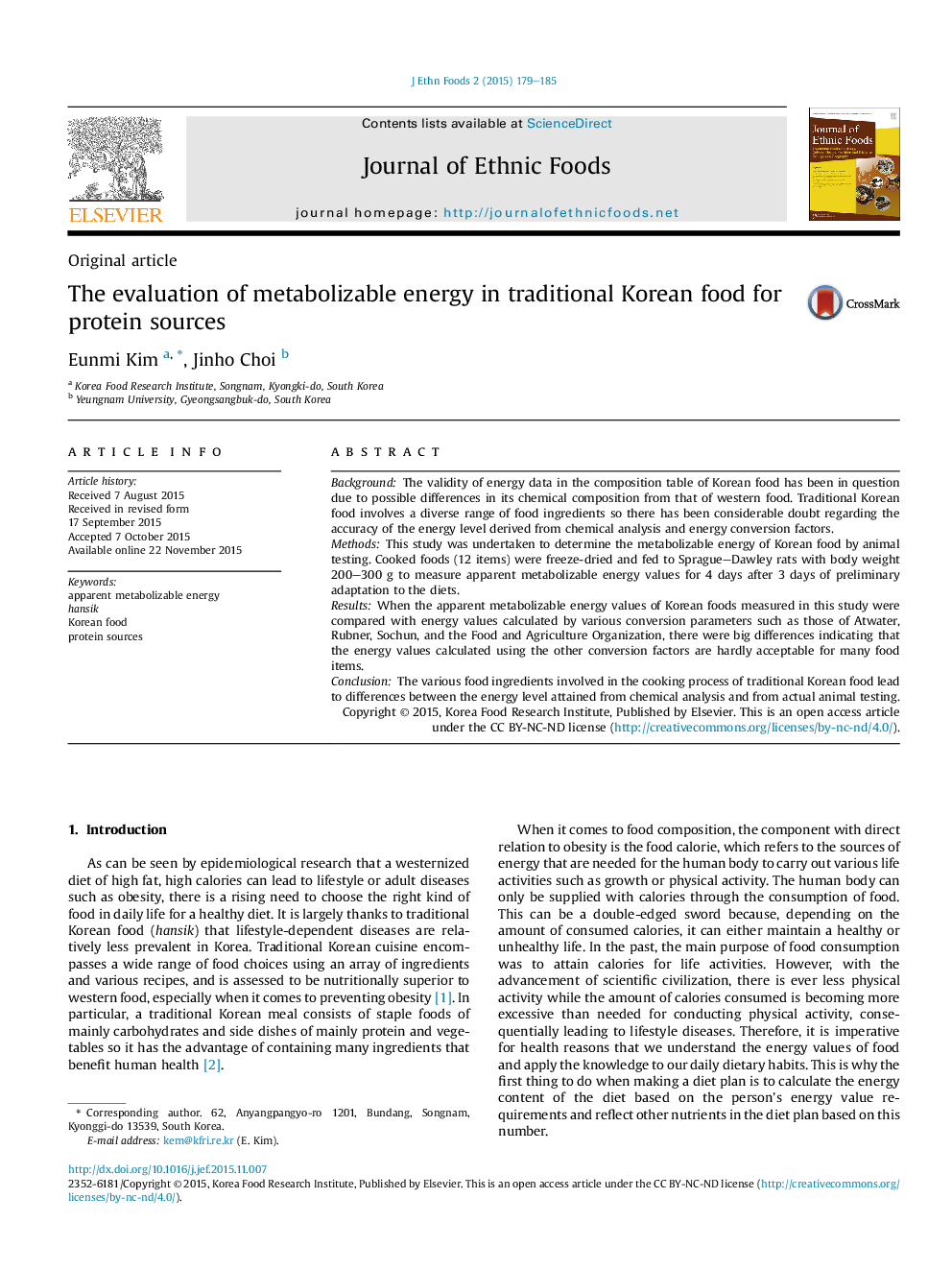| Article ID | Journal | Published Year | Pages | File Type |
|---|---|---|---|---|
| 2686773 | Journal of Ethnic Foods | 2015 | 7 Pages |
BackgroundThe validity of energy data in the composition table of Korean food has been in question due to possible differences in its chemical composition from that of western food. Traditional Korean food involves a diverse range of food ingredients so there has been considerable doubt regarding the accuracy of the energy level derived from chemical analysis and energy conversion factors.MethodsThis study was undertaken to determine the metabolizable energy of Korean food by animal testing. Cooked foods (12 items) were freeze-dried and fed to Sprague–Dawley rats with body weight 200–300 g to measure apparent metabolizable energy values for 4 days after 3 days of preliminary adaptation to the diets.ResultsWhen the apparent metabolizable energy values of Korean foods measured in this study were compared with energy values calculated by various conversion parameters such as those of Atwater, Rubner, Sochun, and the Food and Agriculture Organization, there were big differences indicating that the energy values calculated using the other conversion factors are hardly acceptable for many food items.ConclusionThe various food ingredients involved in the cooking process of traditional Korean food lead to differences between the energy level attained from chemical analysis and from actual animal testing.
